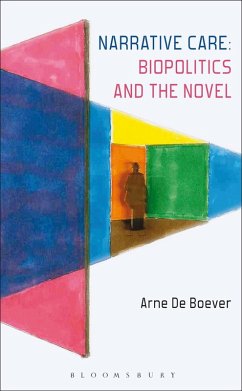If the September 11 terror attacks opened up an era of crises and exceptions of which we are yet to see the end, it is perhaps not surprising that care has emerged in the early twenty-first century as a key political issue. This book approaches contemporary narratives of care through the lens of a growing body of theoretical writings on biopolitics. Through close-readings of J.M. Coetzee's Slow Man, Kazuo Ishiguro's Never Let Me Go, Paul Auster's The Book of Illusions, and Tom McCarthy's Remainder, it seeks to reframe debates about realism in the novel ranging from Ian Watt to Zadie Smith as engagements with the novel's biopolitical origins: its relation to pastoral care, the camps, and the welfare state. Within such an understanding of the novel, what possibilities for a critical aesthetics of existence does the contemporary novel include?
Hinweis: Dieser Artikel kann nur an eine deutsche Lieferadresse ausgeliefert werden.
Hinweis: Dieser Artikel kann nur an eine deutsche Lieferadresse ausgeliefert werden.









